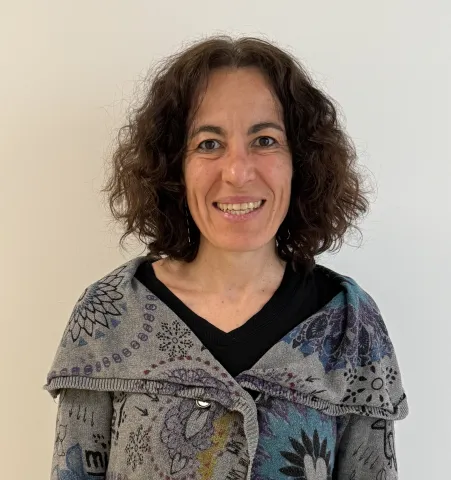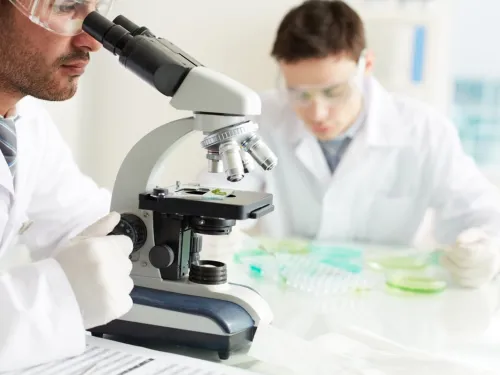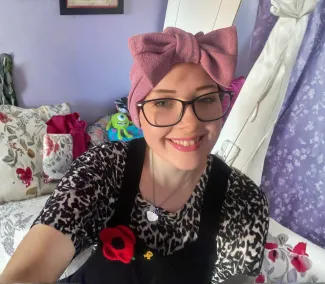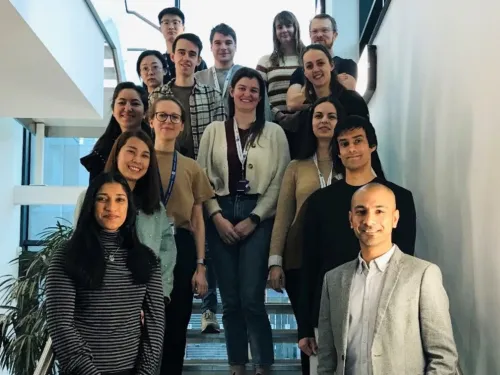This project is part of an £800,000 collaborative investment into Ewing sarcoma research, funded by CCLG Special Named Funds – #PearlPower, the Kieran Maxwell Legacy, Rosie Rocks the World, and David Vernon’s Fund – in partnership with the Bone Cancer Research Trust, the Ewing’s Sarcoma Research Trust, and Great Ormond Street Hospital Charity.
The study, led by Dr Sara Sánchez Molina at the Institut de Recerca Sant Joan de Déu in Barcelona, will investigate how the cancer-causing fusion protein known as EWSR1-FLI1 interacts with DNA. Although EWSR1-FLI1 is known to drive Ewing sarcoma by turning on cancer-promoting genes, it has so far proven very difficult to target with existing treatments.
Instead, the researchers will explore how EWSR1-FLI1 interact with other proteins to bind to DNA and support the development of cancer. This project will use cutting-edge techniques to disrupt these interactions, stopping EWSR1-FLI1 from activating genes that help the cancer grow and survive.
Dr Sánchez Molina said: “This approach harnesses ‘epigenetics’, which refers to the different ways in which our genetic code is influenced, without altering the code itself. For example, the way proteins may bind to the genetic code (DNA), causing the switching on or off of genes which can lead to cancerous changes.”
The team hopes that by disrupting these protein networks, they can reverse the changes that allow cancer to grow – potentially uncovering new targets for kinder, more precise treatments in the future.
One of the CCLG Special Named Funds that has contributed to this project is David Vernon’s Fund, established in memory of David, who died from Ewing sarcoma at the age of 17. His parents, Liz and Martin, described David as “a loving and caring young man” who loved “football and playing computer games”.
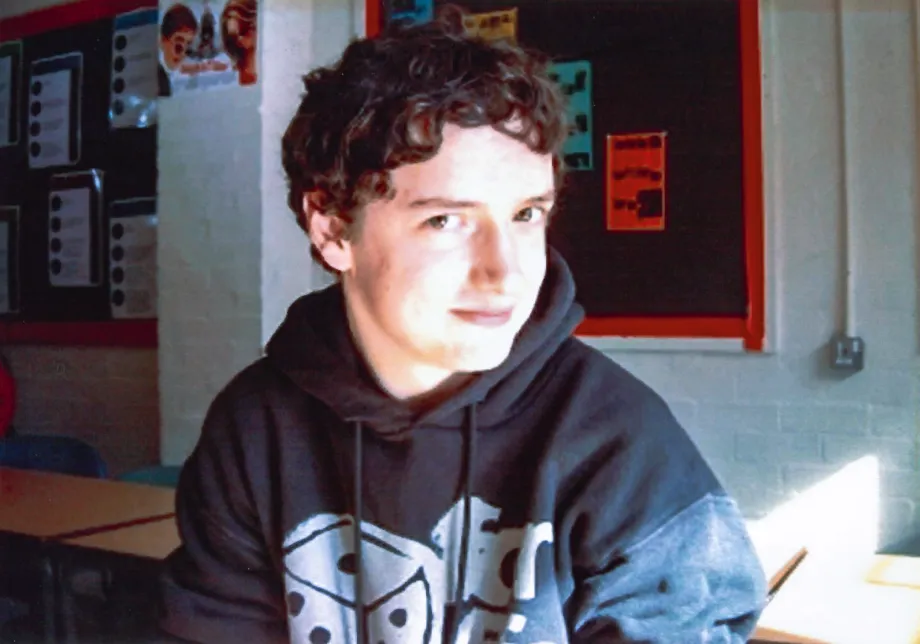
David Vernon
On the last day of school after his GCSEs in 2005, the family realised something was seriously wrong. David’s love of football provided the first clue, said Liz and Martin, “when his friends all went to play football, but he came home because his foot hurt so much”.
Unfortunately, David’s diagnosis was not straightforward. The pain in his foot led to a series of misdiagnoses and delays, finally resulting in a diagnosis of Ewing sarcoma in September 2005. He underwent intensive chemotherapy and radiotherapy but died just 10 months later.
Liz and Martin said: “When David was diagnosed with Ewing sarcoma, he refused to see it as unfair – he said that asking ‘why me?’ was a waste of time. It was going to be someone, so why not him? Even through pain and harsh treatment, he showed great strength, courage and an unfailing sense of humour.”
Since David’s death, his family has raised funds for research through CCLG, from selling homemade jams and chutneys to taking on skydives and holding fishing raffles.
His parents explained:
We can’t bring David back, but we do have a sense of satisfaction each time we make a donation into his fund, knowing we are doing it in his memory. David said that it was bad luck to get cancer in the first place and even worse luck to have a rare and aggressive kind, so he would be very pleased to hear his family has taken positive action to support the development of more effective treatments.
Vicki Brunt, Head of Fundraising at CCLG, said: “We are delighted to have been able to support four new Ewing sarcoma projects through our Special Named Funds and by working with three fantastic charities.
“Young people with cancer deserve safe and effective treatments without causing side effects and long-term health problems for survivors. We hope that this research will one day lead to improvements that ensure every young person can survive their cancer and lead a long and healthy life.”

